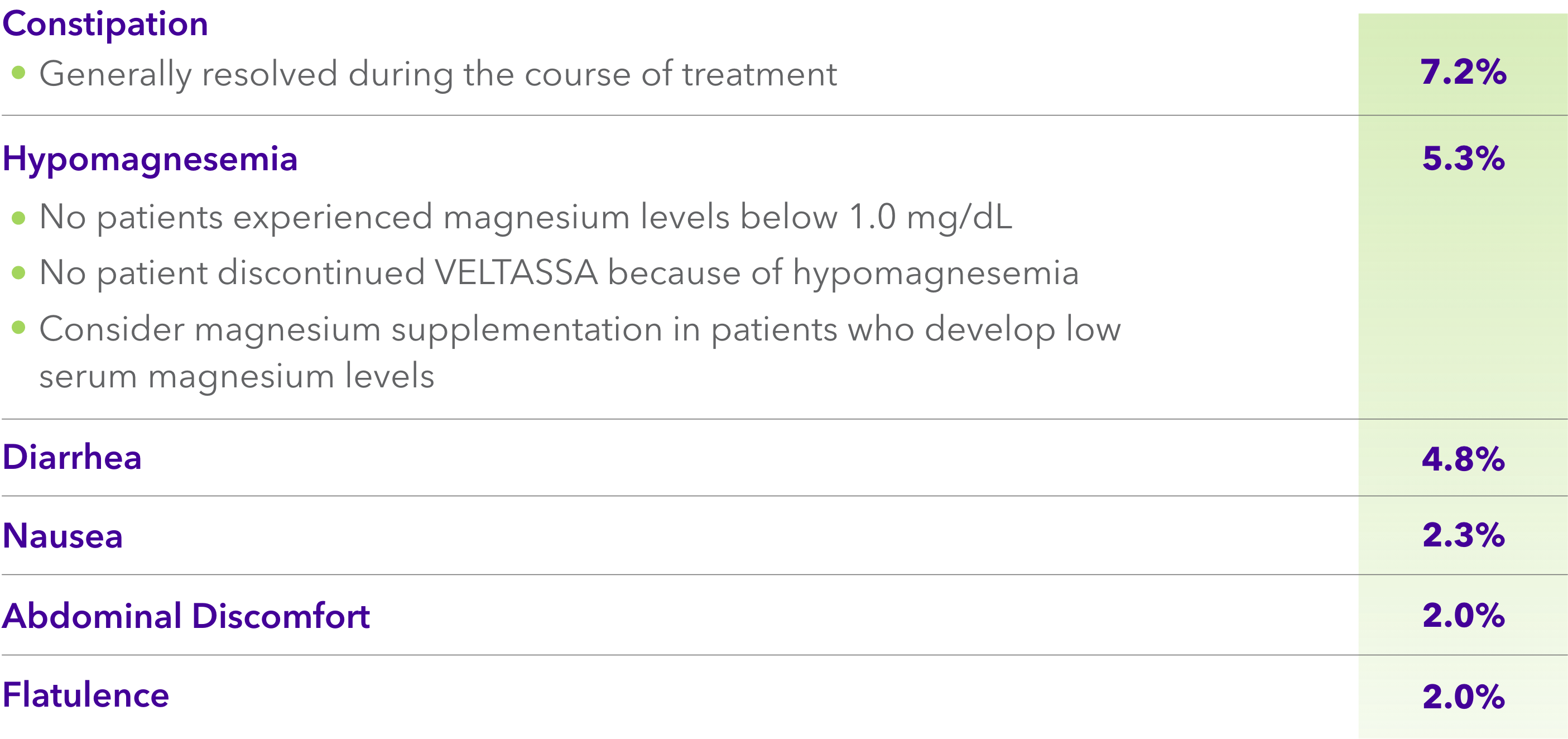INDICATION
VELTASSA is indicated for the treatment of hyperkalemia in adults and pediatric patients ages 12 years and older.
Limitation of Use: VELTASSA should not be used as an emergency treatment for life-threatening hyperkalemia because of its delayed onset of action.
IMPORTANT SAFETY INFORMATION
CONTRAINDICATIONS
VELTASSA is contraindicated in patients with a history of a hypersensitivity reaction to VELTASSA or any of its components.
WARNINGS AND PRECAUTIONS
Worsening of Gastrointestinal Motility: Avoid use of VELTASSA in patients with severe constipation, bowel obstruction or impaction, including abnormal post-operative bowel motility disorders, because VELTASSA may be ineffective and may worsen gastrointestinal conditions. Patients with a history of bowel obstruction or major gastrointestinal surgery, severe gastrointestinal disorders, or swallowing disorders were not included in clinical studies.
Hypomagnesemia: VELTASSA binds to magnesium in the colon, which can lead to hypomagnesemia. In clinical studies, hypomagnesemia was reported as an adverse reaction in 5.3% of adult patients treated with VELTASSA. Approximately 9% of adult patients in clinical trials developed hypomagnesemia with a serum magnesium value < 1.4 mg/dL. Monitor serum magnesium. Consider magnesium supplementation in patients who develop low serum magnesium levels.
MOST COMMON ADVERSE REACTIONS
The most common adverse reactions (incidence ≥ 2%) in adult patients treated with VELTASSA were constipation (7.2%), hypomagnesemia (5.3%), diarrhea (4.8%), nausea (2.3%), abdominal discomfort (2.0%) and flatulence (2.0%). Mild to moderate hypersensitivity reactions were reported in 0.3% of adult patients treated with VELTASSA and included edema of the lips. The safety profile of VELTASSA in a study of 14 pediatric patients ages 12 to 17 years was generally similar to that observed in adult patients.


